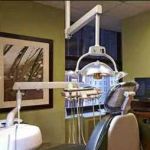Tooth Antibacterial Treatment: How to Effectively Treat and Prevent Bacterial Infections in Your Teeth
- What is Tooth Antibacterial Treatment?
- Why You Need Tooth Antibacterial Treatment
- Top Antibacterial Treatment Products for Teeth
- Preventing Bacterial Infections in Teeth
- Real-Life Experiences with Tooth Antibacterial Treatment
What is Tooth Antibacterial Treatment?
Tooth antibacterial treatment refers to products and practices used to fight bacterial infections in the mouth, particularly those that affect the teeth and gums. These infections can lead to various oral health problems, such as cavities, gum disease, and bad breath. Antibacterial treatments aim to reduce or eliminate harmful bacteria in the mouth, keeping your teeth and gums healthy. Common forms of tooth antibacterial treatments include mouthwashes, toothpaste with antibacterial properties, and professional dental treatments like fluoride treatments or deep cleaning.
Why You Need Tooth Antibacterial Treatment
Bacteria naturally reside in your mouth, and while many are harmless, some can cause serious damage to your oral health. Without proper antibacterial treatment, these harmful bacteria can lead to tooth infections, which may cause pain, swelling, and even tooth loss if left untreated. Furthermore, poor oral hygiene and diets high in sugar can fuel bacterial growth, increasing the risk of infections.
Tooth antibacterial treatment helps to kill harmful bacteria, prevent plaque buildup, and reduce the chances of developing cavities or gum disease. It's essential for maintaining long-term oral health and preventing painful and costly dental treatments in the future. Regular use of antibacterial products can also help combat bad breath and promote overall mouth cleanliness.
Top Antibacterial Treatment Products for Teeth
Several products are designed to provide antibacterial treatment for your teeth, each targeting specific oral health needs. Some of the best antibacterial treatments include:
- Antibacterial Toothpaste: Many toothpastes on the market contain antibacterial ingredients such as triclosan or fluoride. These help kill harmful bacteria and protect your teeth from cavities and gum disease. Look for toothpastes that have the American Dental Association (ADA) seal of approval for effective antibacterial protection.
- Antibacterial Mouthwash: Mouthwashes with antibacterial properties, like Listerine, can reach areas of the mouth that brushing and flossing might miss. They help kill bacteria, freshen your breath, and reduce plaque buildup. It’s important to choose a mouthwash that specifically targets bacterial infections in the teeth and gums.
- Antibacterial Gels: Gels like Paroex or Peridex are often prescribed by dentists to treat more serious bacterial infections in the mouth. These gels can help control gum disease and promote healing by reducing inflammation and bacterial growth.
- Dental Floss with Antibacterial Coating: Flossing with antibacterial-coated dental floss can help reduce bacterial buildup between teeth and below the gumline, areas that are particularly prone to infections.
When choosing a product, it’s important to consult with your dentist to ensure that it meets your specific oral health needs.
Preventing Bacterial Infections in Teeth
Prevention is the key to avoiding bacterial infections in the teeth. Here are some effective tips for maintaining good oral hygiene and preventing infections:
- Brush Regularly: Brushing your teeth at least twice a day with an antibacterial toothpaste is one of the most effective ways to prevent bacterial infections. Make sure to brush all surfaces of your teeth and gums to remove food particles and plaque.
- Floss Daily: Flossing helps remove debris and plaque from between your teeth and along the gumline, where toothbrushes cannot reach. This is crucial for preventing bacterial buildup and gum disease.
- Use Antibacterial Mouthwash: Incorporating an antibacterial mouthwash into your daily routine can help kill bacteria that brushing and flossing may have missed. This is particularly helpful for individuals who are prone to infections or have weakened immune systems.
- Eat a Balanced Diet: Eating a diet low in sugar and high in vitamins and minerals can help strengthen your teeth and gums. Foods rich in calcium, like dairy products, can help protect your enamel from bacterial damage.
- Visit Your Dentist Regularly: Routine dental check-ups and cleanings are essential for catching potential infections early and preventing serious issues from developing.
Real-Life Experiences with Tooth Antibacterial Treatment
Many people have seen great results from using tooth antibacterial treatments. For instance, Sarah, a long-time user of antibacterial mouthwash, noticed a significant reduction in her gum inflammation and bad breath after just a few weeks of use. She attributed her healthier gums and fresher breath to regular use of mouthwash combined with good brushing and flossing habits.
John, on the other hand, was struggling with recurring tooth infections until his dentist recommended a prescription antibacterial gel. After following the treatment plan, he found that the infection cleared up, and he no longer dealt with painful flare-ups. John is now committed to using antibacterial products to maintain his oral health and prevent future issues.
These personal stories highlight the importance of incorporating antibacterial treatments into your oral care routine to combat bacterial infections and maintain a healthy mouth.
Interested in exploring more about tooth antibacterial treatments or purchasing the best products for your oral health? Visit Dentistry Toothtruth for expert recommendations and quality products to help keep your teeth and gums in top shape!







 Infuse Dental4.0 (292 review)
Infuse Dental4.0 (292 review) Doctor Lenz DDS Gentle Family Restorative Dentistry5.0 (4 review)
Doctor Lenz DDS Gentle Family Restorative Dentistry5.0 (4 review) Corsi Dental Associates4.0 (789 review)
Corsi Dental Associates4.0 (789 review) Excel Dental, Orthodontics & Implant Center4.0 (34 review)
Excel Dental, Orthodontics & Implant Center4.0 (34 review) Dental Smiles of West Chicago4.0 (124 review)
Dental Smiles of West Chicago4.0 (124 review) Coast Dental4.0 (545 review)
Coast Dental4.0 (545 review) The Importance of Oral Health Education During Pregnancy for a Healthy Pregnancy
The Importance of Oral Health Education During Pregnancy for a Healthy Pregnancy Best Tips for Brushing Your Teeth Properly for Healthy Gums: Essential Techniques for Oral Health
Best Tips for Brushing Your Teeth Properly for Healthy Gums: Essential Techniques for Oral Health Why Skipping Dental Checkups Can Lead to Bigger Oral Health Problems
Why Skipping Dental Checkups Can Lead to Bigger Oral Health Problems Advantages of Porcelain Dental Restorations
Advantages of Porcelain Dental Restorations How Can Diabetes Cause Tooth and Gum Problems? Preventing and Managing Oral Health Issues
How Can Diabetes Cause Tooth and Gum Problems? Preventing and Managing Oral Health Issues Healthy Habits for Promoting Good Oral Health and Hygiene: Tips for a Healthy Smile
Healthy Habits for Promoting Good Oral Health and Hygiene: Tips for a Healthy Smile